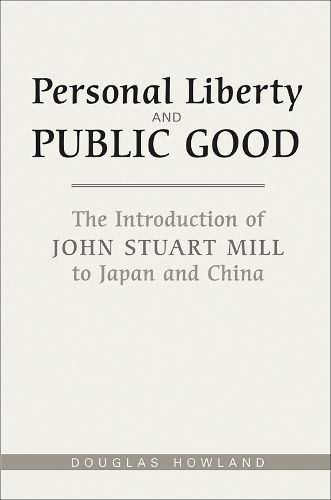Readings Newsletter
Become a Readings Member to make your shopping experience even easier.
Sign in or sign up for free!
You’re not far away from qualifying for FREE standard shipping within Australia
You’ve qualified for FREE standard shipping within Australia
The cart is loading…






Blame for the putative failure of liberalism in late-nineteenth-century Japan and China has often been placed on an insufficient grasp of modernity among East Asian leaders or on their cultural commitments to traditional values. In Personal Liberty and Public Good, Douglas Howland refutes this view, turning to the central text of liberalism in that era: John Stuart Mill’s On Liberty.
Howland offers absorbing analyses of the translations of the book into Japanese and Chinese, which at times reveal astonishing emendations. As with their political leaders, Mill’s Japanese and Chinese translators feared individual liberty could undermine the public good and standards for public behaviour, and so introduced their own moral values - Christianity and Confucianism, respectively- into On Liberty, filtering its original meaning. Howland mirrors this mistrust of individual liberty in Asia with critiques of the work in England, which itself had trouble adopting liberalism.
Personal Liberty and Public Good is a compelling addition to the corpus of writing on the work of John Stuart Mill. It will be of great interest to historians of political thought, liberalism, and translation, as well as scholars of East Asian studies.
$9.00 standard shipping within Australia
FREE standard shipping within Australia for orders over $100.00
Express & International shipping calculated at checkout
Blame for the putative failure of liberalism in late-nineteenth-century Japan and China has often been placed on an insufficient grasp of modernity among East Asian leaders or on their cultural commitments to traditional values. In Personal Liberty and Public Good, Douglas Howland refutes this view, turning to the central text of liberalism in that era: John Stuart Mill’s On Liberty.
Howland offers absorbing analyses of the translations of the book into Japanese and Chinese, which at times reveal astonishing emendations. As with their political leaders, Mill’s Japanese and Chinese translators feared individual liberty could undermine the public good and standards for public behaviour, and so introduced their own moral values - Christianity and Confucianism, respectively- into On Liberty, filtering its original meaning. Howland mirrors this mistrust of individual liberty in Asia with critiques of the work in England, which itself had trouble adopting liberalism.
Personal Liberty and Public Good is a compelling addition to the corpus of writing on the work of John Stuart Mill. It will be of great interest to historians of political thought, liberalism, and translation, as well as scholars of East Asian studies.